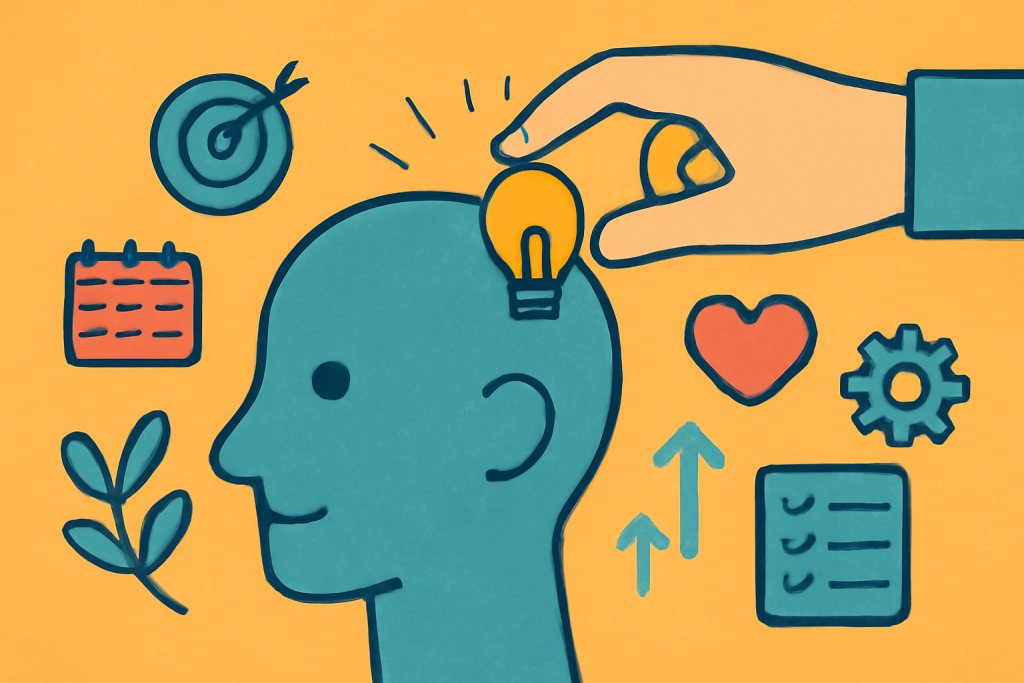We often think that achieving success or making a real impact requires monumental shifts or massive changes. However, there’s a growing trend emerging from the concept of “micro-wisdom” — the idea that small, simple insights can have a profound influence on our lives. These small ideas, when applied, can lead to significant transformations in how we approach challenges, relationships, and even our personal growth.
Micro-wisdom highlights how seemingly insignificant changes in our mindset or actions can generate major results. As we move toward a more interconnected world, understanding the power of these small shifts can help us foster better decisions, create deeper connections, and achieve personal and professional success. In this article, we’ll explore the power of micro-wisdom and how it can make a big impact in our daily lives.

What is Micro-Wisdom?
Micro-wisdom is the concept that small ideas, practices, or shifts in thinking can lead to profound impacts over time. It focuses on the idea that we don’t need to overhaul our lives to see significant changes. Instead, embracing small, actionable wisdom in our daily routines and choices can create a ripple effect that enhances our overall life experience.
This concept applies across different areas of life, whether in relationships, career, or personal growth. Small habits like mindful breathing, daily gratitude, or even small changes in how we approach difficult tasks can lead to greater fulfillment and success. Micro-wisdom is rooted in the belief that impactful change starts with the smallest ideas.
The Importance of Small Ideas
The real power behind micro-wisdom is its ability to create lasting changes without requiring major life disruptions. Small ideas often don’t feel overwhelming, which makes them easier to incorporate into our daily lives. Here are a few reasons why small ideas can have such a big impact:
- Easier to Implement: Small ideas are less intimidating than large, complex ones. When an idea feels easy to incorporate, people are more likely to follow through on it.
- Sustainable Impact: By focusing on small changes, we can build sustainable habits over time. These incremental improvements accumulate, leading to significant changes without feeling forced.
- Personal Growth: Small ideas can often serve as gateways to personal development. They may lead to larger revelations or inspire new ways of thinking that contribute to long-term growth.
- Improved Mental Health: Minor shifts in perspective, like practicing gratitude or setting small daily goals, can significantly reduce stress and improve overall well-being.
Real-World Examples of Micro-Wisdom
- Mindful Breathing for Stress Relief: Instead of overhauling your daily routine to find balance, taking a few minutes each day for mindful breathing can lead to less anxiety and more focus. Studies have shown that controlled breathing reduces cortisol levels and calms the nervous system, making it easier to handle stress.
- The Power of Gratitude: Starting a daily gratitude journal is a simple habit that has been linked to improved mental health. By noting small things you’re thankful for, you change the way your brain processes emotions, increasing positivity and resilience.
- The 2-Minute Rule: The idea is simple: if a task will take less than two minutes to complete, do it immediately. This small action helps prevent procrastination and reduces the mental load of accumulated tasks.
- Setting Micro-Goals: Instead of focusing on large, intimidating objectives, break them down into smaller, achievable steps. This tactic, known as micro-goaling, can increase productivity by reducing overwhelm and giving you a clear, actionable path forward.
How Micro-Wisdom Can Be Applied in Daily Life
Incorporating micro-wisdom into your everyday routine doesn’t have to be complicated. Here are a few practical ways to bring small ideas into your life:
- Start the Day with One Positive Affirmation: Before you dive into the day, spend a few moments saying a positive affirmation to set your mindset for success. A simple phrase like “I am capable of handling challenges today” can shift your perspective and influence your actions.
- Set Mini-Goals: Instead of focusing on long-term projects all at once, break them down into bite-sized tasks. Focus on completing one small action at a time, such as sending an email or researching a topic, and gradually build momentum.
- Practice Mindful Eating: Instead of rushing through meals, take time to savor each bite. This small shift not only improves digestion but also encourages mindfulness, helping you stay present and reduce stress.
- Simplify Decision-Making: Apply the “two-minute rule” to daily decisions. Whether it’s organizing your workspace or responding to emails, taking action right away will prevent procrastination and keep you feeling accomplished.
- Reframe Negative Thoughts: When faced with a challenge, practice reframing by focusing on what you can control and finding an opportunity for growth. A simple shift in perspective can open the door to new solutions.
Conclusion
Micro-wisdom is a reminder that we don’t always need large-scale changes to improve our lives. By embracing small ideas that are easy to implement and sustainable, we can create lasting and meaningful impacts. The beauty of micro-wisdom is that anyone can begin applying it in their life, regardless of their circumstances. Whether it’s through small habits like gratitude, mindful breathing, or breaking large goals into manageable steps, these small shifts can lead to big transformations.
In a world that often emphasizes rapid, large-scale change, micro-wisdom invites us to slow down and consider how small, intentional actions can guide us toward success and happiness. Start small, stay consistent, and watch as these micro-changes begin to reshape your life in powerful ways.
References
- “The Power of Small Habits: Why Tiny Changes Can Lead to Big Results,” James Clear, Atomic Habits, 2018.
- “How Gratitude Can Change Your Life,” Robert Emmons, The Psychology of Gratitude, 2019.
- “Mindfulness and Stress Reduction,” National Institutes of Health, 2020.









